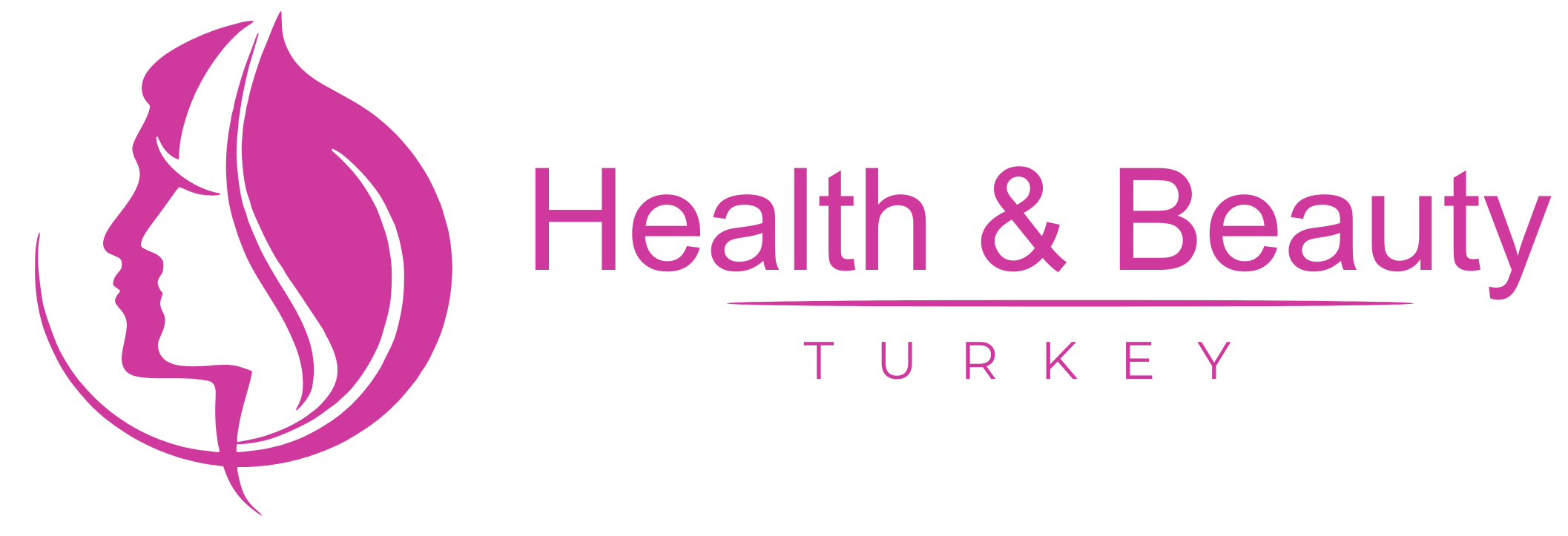Introduction
Today, Turkey is a leading global destination for medical tourism, especially in the fields of cosmetic and reconstructive surgery. Among the medical procedures experiencing increasing demand from Arab and foreign patients is gynecomastia surgery, medically known as male breast reduction. It is an effective option for overcoming the issue of enlarged breast tissue in males, which can negatively affect self-confidence and body image.
If you are looking for a solution to gynecomastia and are considering undergoing the procedure in Turkey, you are in the right place. In this comprehensive article, we will delve into the details of gynecomastia surgery in Turkey, starting from its causes, moving on to ideal candidates, the latest techniques used, the cost of gynecomastia surgery in Turkey, and the expected results, with a focus on ensuring your safe and successful experience with “Health & Beauty Turkey.”
We fully understand that the decision to undergo surgery may be accompanied by some concerns, especially regarding potential complications. Therefore, in this guide, we aim to provide comprehensive and transparent information and to reassure you about the precautionary measures we take to ensure your safety, including providing Medical Tourism Complications Insurance as an additional guarantee for your peace of mind.
Medical Background
What is Gynecomastia? Understanding the Causes and Factors
Gynecomastia is a medical condition characterized by the enlargement of breast tissue in males. It can occur at any age and is often the result of an imbalance between androgen (male hormones) and estrogen (female hormones) in the body. This enlargement may be on one side (unilateral gynecomastia) or on both sides (bilateral gynecomastia).
Main Causes of Gynecomastia:
- Natural Hormonal Changes:
- In newborns: Due to exposure to the mother’s hormones during pregnancy.
- In adolescents (puberty): This is the most common period, where rapid hormonal changes can lead to temporary breast enlargement. This type of gynecomastia usually disappears on its own within a few months to two years.
- In older adults: With age, testosterone levels may decrease, leading to a hormonal imbalance and an increased estrogen ratio.
- Medical Conditions and Medications:
- Liver diseases: The liver plays a crucial role in hormone metabolism, and any dysfunction can affect their balance.
- Hypothyroidism: Thyroid disorders can affect hormones.
- Certain medications: Drugs for heart conditions (like spironolactone), ulcer medications, some antibiotics, HIV treatment drugs, and anabolic steroids used for muscle building can cause gynecomastia.
- Tumors: Rarely, gynecomastia can be a sign of a tumor in the testicles, adrenal gland, or pituitary gland, especially if the enlargement is on one side and accompanied by other symptoms.
- Obesity: Excess fat can increase estrogen production, leading to the enlargement of fatty tissue in the breast area, known as pseudogynecomastia, which is different from true gynecomastia caused by the enlargement of glandular breast tissue.
Symptoms of Gynecomastia:
- Swelling of the breast tissue.
- Tenderness or sensitivity when touching the nipple area.
- In some cases, the patient may notice a lump under the nipple.
- Some may complain of psychological discomfort or embarrassment due to the chest’s appearance.
Diagnosing Gynecomastia:
The diagnosis is based on the patient’s medical history, a physical examination, and in some cases, the doctor may request additional tests such as:
- Blood tests: To measure hormone levels, liver function, and to detect any other health problems.
- Mammogram (X-ray of the breast): In cases of pseudogynecomastia or to evaluate the size of the lump.
- Ultrasound: To determine the nature of the lump (glandular or fatty).
- Biopsy: In rare cases, if a tumor is suspected.
Candidates for the Procedure
Ideal Candidates for Gynecomastia Surgery
Gynecomastia surgery is an effective solution for men suffering from abnormal enlargement of breast tissue that has not responded to conservative treatments or disappeared spontaneously, as is often the case in adolescents.
Who are good candidates?
- Men with stable enlargement of breast tissue: Whether this enlargement is caused by hormonal changes, medications, or unknown reasons, provided the enlarged tissue is glandular or mixed (glandular and fatty).
- Individuals with realistic expectations: They understand that the goal of the surgery is to improve the chest’s appearance and reduce its size, not to achieve a perfectly ideal shape.
- People in good general health: They do not suffer from severe chronic diseases that could hinder the healing process or increase the risks of surgery.
- Smokers who can quit smoking: Smokers must stop smoking for a sufficient period before and after the surgery to ensure the best results and reduce the risk of complications.
- Individuals who are not morbidly obese: If the enlargement is primarily due to excess fat (pseudogynecomastia), liposuction may be the most suitable solution, or weight loss may be recommended before surgery.
Who are not candidates or require further evaluation?
- Individuals who are morbidly obese: They may need to lose weight first before considering surgery.
- Men with severe health problems: Such as active heart disease or uncontrolled blood clotting issues.
- Patients taking certain medications: All medications and dietary supplements must be discussed with the doctor.
- Cases suspected to be tumors: These cases require specialized cancer treatment before considering any breast reduction surgery.
- Individuals with severe skin sagging: They may need additional procedures to tighten the skin.
Preparing for the Procedure
Preparation for Gynecomastia Surgery: A Step Towards Success
Proper preparation before traveling to Turkey for gynecomastia surgery ensures a smooth and safe experience and significantly contributes to achieving the best possible results. At “Health & Beauty Turkey,” we provide you with support and guidance every step of the way.
Before Traveling to Turkey:
- Initial Remote Consultation: We usually start with an online consultation with one of our medical representatives. We will ask you to provide clear photos of your chest area, along with information about your medical history, any medications you are taking, and your reasons for wanting the surgery. Our team will initially assess your case and determine if you are a suitable candidate.
- Communication with the Doctor: If you are a suitable candidate, a consultation will be arranged with one of our experienced plastic surgeons. The doctor will explain the details of the procedure, the techniques used, potential risks, and expected results.
- Booking Flights and Accommodation: Once the treatment plan is agreed upon, we will assist you in arranging flight and hotel bookings near the clinic or hospital.
- Health Preparations:
- Medical Tests: We will provide you with a list of necessary tests that you can have done in your home country or will be performed upon your arrival in Turkey. These tests typically include routine blood tests, blood clotting tests, and kidney and liver function tests.
- Quitting Smoking: If you are a smoker, it is strongly recommended to quit smoking one to two months before the surgery and to continue abstaining for a similar period after the procedure.
- Medication Adjustment: The doctor will ask you to stop taking certain medications before surgery, such as aspirin, non-steroidal anti-inflammatory drugs (NSAIDs), and herbal supplements that may increase bleeding.
- Maintaining a Stable Weight: It is preferable to avoid significant weight gain or loss before surgery.
- Healthy Diet: Eating a balanced diet rich in vitamins and minerals supports the healing process.
Upon Arrival in Turkey:
- Airport Reception: We provide a special airport reception service to transport you to your hotel.
- Final Tests: Any remaining medical tests will be conducted at the hospital or clinic.
- Final Consultation with the Doctor: Before the surgery, you will meet with your doctor again to discuss any final questions and to make markings on the skin if necessary.
Before the Procedure
Immediate Pre-Surgery Preparation
On the day before the surgery, you must follow the doctor’s instructions precisely to ensure the best possible preparation.
- Fasting: You will typically be asked to refrain from eating and drinking for 6-8 hours before the surgery.
- Medications: Take any prescribed medications from the doctor with a small amount of water.
- Hygiene: Shower with an antibacterial soap the night before and the morning of the surgery.
- Clothing: Wear loose, comfortable clothing that is easy to put on and take off.
During the Procedure
The Healing Journey: Step-by-Step with Gynecomastia Surgery
Gynecomastia surgery typically involves the removal of enlarged breast glands and, in some cases, excess fat. The technique used varies depending on the size and nature of the enlargement (glandular, fatty, or mixed).
Before the Procedure:
- Medical Examination and Assessment: The doctor performs a thorough evaluation of the chest, measures the size of the enlargement, and assesses skin elasticity.
- Final Consultation: The surgical plan is explained, including the type of anesthesia (usually general anesthesia) and the potential locations of surgical incisions.
- Anesthesia: The appropriate anesthetic is administered by an anesthesiologist.
During the Procedure:
The surgical technique depends on the doctor’s assessment of each patient’s condition and includes:
- Traditional Surgical Technique (Small Incisions):
- In this technique, a very small incision is made (usually around the lower areola of the nipple).
- Through this incision, the surgeon removes the enlarged breast gland tissue using precise surgical instruments.
- If there is excess fat, it may also be removed at the same time.
- This technique is particularly effective in cases where the enlargement is caused by glandular growth.
- Liposuction:
- This technique is primarily used when the enlargement is caused by the accumulation of excess fat (pseudogynecomastia).
- Very small, inconspicuous incisions are made, through which thin tubes (cannulas) are inserted to suction out the excess fat.
- Liposuction can be combined with the traditional surgical technique in mixed cases.
- This technique is characterized by minimal scarring and a faster recovery period.
- Advanced Techniques (such as Laser or Ultrasound-Assisted Liposuction):
- In some cases, the surgeon may use ancillary techniques like laser or ultrasound to liquefy the fat before suctioning it, which can help reduce bleeding and improve skin tightening.
- Excess Skin Removal (in severe cases):
- In cases of severe gynecomastia with significant skin sagging, the surgeon may need to make larger incisions to remove the excess skin. However, this is less common in male gynecomastia compared to female breast reduction.
After the Procedure and Recovery Period
The Recovery Period and Results
After the Procedure:
- Immediate Recovery Phase:
- The patient is moved to the recovery room for monitoring.
- Compression dressings or a special compression garment for the chest may be applied, which is essential to reduce swelling and support the tissues during healing.
- Medical Follow-up:
- The medical team will monitor your condition and ensure there is no bleeding or complications.
- Pain relievers are given to control any discomfort.
- The hospital stay is usually short (one day in most cases).
The Recovery Period and Results:
- The First Few Days After Surgery:
- The compression garment must be worn continuously for a period ranging from one week to a month, according to the doctor’s instructions.
- Avoid strenuous activities and heavy lifting.
- Keep the wounds clean and change the dressings as instructed.
- Gradual Healing:
- Most of the swelling and bruising will subside within the first few weeks.
- Light daily activities can be gradually resumed.
- Initial results appear after the swelling disappears, but the final shape of the chest becomes fully apparent after 3-6 months, as the tissue remodeling process completes.
- Restrictions:
- It is advisable to avoid strenuous sports or any activities requiring strong arm movements for 4-6 weeks.
- Direct sun exposure on the scars should be avoided for several months.
Treatment Options in Turkey
Modern Techniques and Advantages at “Health & Beauty Turkey”
Gynecomastia surgery in Turkey, especially at “Health & Beauty Turkey,” is distinguished by the use of the latest surgical techniques to ensure the best results with minimal intervention and rapid recovery.
Latest Techniques and Innovations:
- Endoscopic Surgery: In some cases, minimally invasive techniques can be used to provide better visualization and reduce the size of incisions.
- Vaser Liposuction: This uses ultrasound waves to precisely break down fat cells, making them easier to remove and helping to tighten the skin.
- Local Anesthesia with Sedation: For minor cases of gynecomastia, this type of anesthesia can be used to reduce the risks associated with general anesthesia.
- Scar Minimization Techniques: Our surgeons are careful to hide surgical incisions in inconspicuous areas as much as possible and use very fine surgical threads to ensure minimal scarring.
Addressing Patient Concerns
Addressing Patient Concerns: Comprehensive Insurance for Your Peace of Mind
We understand that considering surgery can raise concerns about unexpected complications. At “Health & Beauty Turkey,” we are committed to providing a safe and supportive environment. For this reason, we offer all our patients undergoing surgical procedures Medical Tourism Complications Insurance.
Details of Medical Tourism Complications Insurance:
This insurance is an extra step to ensure your peace of mind and covers important aspects in the event of unexpected complications requiring additional medical intervention:
- Inpatient Treatment Coverage: The insurance covers the costs of treatment and medical care if any complications require hospitalization.
- Extended Validity Period: The insurance remains valid for a period of 6 months from the date of the surgery, giving you ample time to feel completely secure.
- Revision Surgery Coverage: If the patient needs a corrective procedure (revision) due to complications, the insurance covers the costs of this operation.
- Coverage for Travel and Accommodation Costs: If a revision surgery is required, the insurance also covers the necessary travel and accommodation costs for the patient to return to Turkey for the required treatment.
- Commitment to Accredited Clinics: This insurance is applied exclusively in clinics and hospitals accredited by the Turkish Ministry of Health, ensuring the highest levels of quality and safety.
This insurance reflects our deep commitment to providing unparalleled care and gives you the confidence that you are in safe and responsible hands.
Practical Tips for the Patient
Practical Tips for Our Patients: A Comfortable and Successful Journey
Your medical experience in Turkey goes beyond just the procedure; it also includes your journey, your stay, and your adaptation to a new environment. Here are some tips to make this experience smoother.
Travel and Accommodation Tips:
- Plan Ahead: Book your flights and accommodation well in advance, especially if you are traveling during peak seasons.
- Constant Communication: Stay in constant contact with your medical representative at “Health & Beauty Turkey” to ask any questions or request assistance.
- Packing List: Don’t forget to bring comfortable clothes, personal medications, and any necessary supplies.
- Limited Exploration: In the first few days after surgery, focus on rest, but you can take light walks in the areas around your hotel if your health condition allows.
Psychological Preparation:
- Talk About Your Concerns: Do not hesitate to share any anxiety or fear with your doctor or our support team.
- Anticipate the Results: Understanding what to expect after surgery helps in managing expectations. You may feel some swelling or temporary numbness, which is normal.
- Be Patient: Healing is a gradual process, and the final results appear over time.
Tips for Life After Treatment:
- Follow the Doctor’s Instructions Precisely: Adhering to instructions for wound care, wearing the compression garment, and restrictions on physical activity is crucial for proper healing.
- Healthy Diet: Continue to eat a balanced diet to support the healing process and maintain the results.
- Avoid Direct Sunlight: To protect scars and skin from pigmentation.
- Maintain a Healthy Weight: To prevent the recurrence of breast enlargement or the appearance of pseudogynecomastia.
- Exercise Regularly (after consulting the doctor): Exercise helps maintain your fitness and overall health.
Cost of Gynecomastia Surgery in Turkey
Price of Gynecomastia Surgery in Turkey, Cost and Results in Turkey
The price of gynecomastia surgery in Turkey is one of the attractive factors that lead many to choose Turkey as a treatment destination. The total cost varies based on several factors, including:
- Surgeon’s Experience and Reputation: Surgeons with extensive experience and a track record of successful operations may have higher fees.
- Technique Used: The cost may differ between traditional surgery, liposuction, or the use of ancillary techniques like laser or Vaser.
- Case Size and Complexity: Cases that require the removal of large amounts of tissue or skin may have a higher cost.
- Hospital or Clinic Costs: These costs include the operating room, accommodation, nursing staff, and anesthesia.
- Medical Tests: The costs of necessary analyses and examinations before the operation.
- All-Inclusive Package: At “Health & Beauty Turkey,” our packages often include many of these costs (such as accommodation, transportation, and an interpreter), making the cost clearer for the patient.
In general, the cost of gynecomastia surgery in Turkey, including the surgical procedure, hospital fees, and doctor’s fees, ranges approximately from $2,500 to $5,000 USD. These figures are estimates and can vary significantly.
As for the results, gynecomastia surgery is often very successful, with men regaining a masculine chest appearance, which significantly boosts self-confidence. The results are permanent, especially if a healthy weight is maintained.
Why Choose Health & Beauty Turkey
Why Choose “Health & Beauty Turkey”?
At “Health & Beauty Turkey,” we offer you an integrated treatment experience that combines high medical expertise, the latest technologies, and the personal care you deserve.
- Certified Surgical Expertise: We work with an elite group of certified plastic surgeons with extensive experience in gynecomastia surgery, who constantly follow the latest global developments in this field.
- Comprehensive and Integrated Support: We provide you with an unparalleled service package that includes:
- Airport reception and transfers.
- Accommodation in comfortable hotels close to medical centers.
- A medical interpreter to facilitate communication.
- Scheduling of medical appointments and examinations.
- Continuous medical follow-up during your stay and after your return.
- Safety and Trust: Your safety is our top priority. We ensure that your treatment is performed in internationally accredited medical facilities, and we provide you with Medical Tourism Complications Insurance to ensure your complete peace of mind.
- Competitive Costs: We offer competitive prices compared to many Western countries, while maintaining the highest levels of quality and care.
Frequently Asked Questions
Q: What is the recovery time after gynecomastia surgery?
A: Patients typically need one week to a month to recover fully, with a return to most daily activities within the first week, and avoiding strenuous activities for 4-6 weeks.
Q: Will there be visible scars after the surgery?
A: Surgical incisions are made in hidden areas as much as possible, such as the edge of the lower areola of the nipple. Over time, the scars become barely visible.
Q: When will I see the final results of the gynecomastia surgery?
A: Initial results appear after the swelling and bruising subside within the first few weeks, but the final shape of the chest becomes fully apparent after 3-6 months, as the tissue remodeling process is completed.
Q: Is gynecomastia surgery painful?
A: The patient may feel some discomfort or pain after the surgery, which can be effectively controlled with pain relievers prescribed by the doctor. Most patients describe the pain as mild to moderate.
Q: Can gynecomastia return after the surgery?
A: The results are often permanent. However, significant weight gain or severe hormonal changes may lead to the reappearance of some swelling, especially if not all glandular tissue was removed.
The decision to undergo gynecomastia surgery in Turkey is a step towards regaining your self-confidence and improving your quality of life. At “Health & Beauty Turkey,” we are committed to providing you with the highest standards of medical care at affordable prices, with additional guarantees for your safety and comfort, such as Medical Tourism Complications Insurance.
We have strived in this article to provide a comprehensive and detailed guide on everything related to gynecomastia surgery in Turkey, its cost, and results, with a focus on the expertise of our doctors, advanced technologies, and the integrated services we offer.
Do not let questions or concerns stand between you and achieving the results you aspire to. Our team is ready to answer all your inquiries and provide a free and personalized consultation.
Contact your medical representative at “Health & Beauty Turkey” now for a free consultation and to schedule an assessment of your case. Discover how we can help you achieve your goal of having a masculine chest and a confident appearance!




